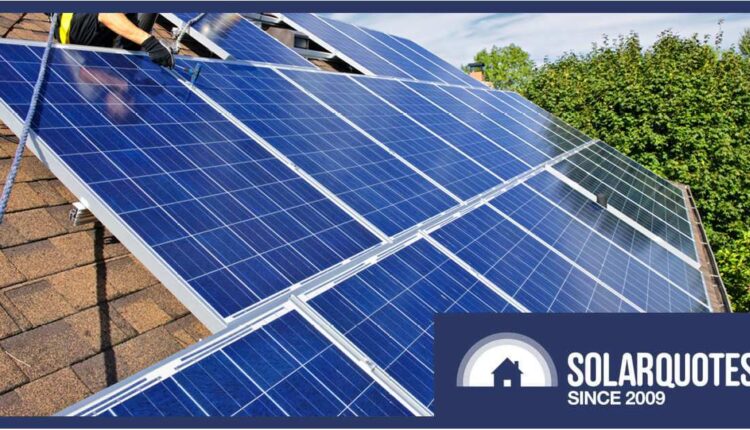Solar Citizens Spruiks Queensland Solar for All Plan
Solar Citizens is calling for cross-party commitment to a plan that the community-based organization says will focus on providing access to rooftop solar and batteries to the many Queensland households currently excluded from direct solar savings.
The adoption of rooftop solar energy in Queensland is progressing rapidly, with more than one million small-scale installations to date. According to the Australian Photovoltaic Institute (APVI), the estimated proportion of semi-detached and detached homes with solar panels installed is around 51.3%, putting it at the top of states and territories in terms of saturation.
“…but many Queenslanders are still locked out because of where they live,” Solar Citizens CEO Heidi Lee Douglas said. “Queenslanders living in rental, strata and social housing also have a right to cheap clean energy.”
With the state election just two months away, cost of living issues – including energy – are weighing heavily on Queenslanders.
9-point plan of the solar citizens
The group wants all candidates to support its Solar For All plan for Queensland. A quick summary of the 9 points:
1. Queensland’s own residential energy system strategy
This would include a thorough review of existing energy rules and regulations, as well as targets for the further rapid deployment of rooftop solar and home batteries.
2. Solar for rental
Make energy efficiency disclosure mandatory at the point of sale for the entire housing stock and when advertising rental properties. plus minimum standards for the energy efficiency of rental properties as part of the minimum standard for housing.
The plan also sets a target of at least 10,000 more private rental properties with solar roofs by 2026 and 100,000 by 2030; supported by unspecified programs. Citing ABS Census 2021, the group notes there are more than 618,000 rental properties in Queensland, representing a third of the state’s total housing stock.
3. Solar and sustainability infrastructure on rooftops in layers with titles
Amend the Body Corporate and Community Management Act of 1997 to lower the voting threshold for sustainability projects, to make them easier to enforce, and to include programs that help corporations improve energy efficiency. According to Solar Citizens, there are more than 500,000 units among more than 48,000 strata-titled properties in Queensland and the changes could result in 60,000 solar installations.
4. Apartment buildings suitable for electric vehicle charging
Calls on the QLD Government to provide a $20 million fund over four years to support the installation of electric vehicle charging infrastructure in apartment buildings and other multi-family housing.
5. Solar and virtual power plants for social housing
Installing rooftop solar panels on 30% of public housing in the state (around 20,000) over the next four years and installing batteries on 10,000 of those homes initially. In addition, a state-owned and operated virtual power plant for social housing was created. The VPP would provide essential grid services and, the group said, reduce electricity costs for everyone.
6. Energy renovation for social housing
Participation in the national $300 million Social Housing Home Energy Upgrade Fund, which requires a Queensland Government grant. According to Solar Citizens, around $123 million – including government funding – is currently left behind for the energy modernization of social housing.
7. Energy efficiency ratings for low-income households
Provide funding to introduce free or subsidized energy assessments to all lower-income households living in older, less energy efficient homes.
8. Urban Renewable Energy Industrial Zones (UIREZs)
Guidelines for the development of zones within urban areas that would support high levels of small and medium-scale renewable energy and storage; This could provide cheaper electricity to local manufacturing and logistics companies.
9. Ongoing home battery support
An ongoing subsidy designed to pick up where Queensland’s Battery Booster program left off and encourage further installation of household batteries. Judging by how quickly the Battery Booster program rebates have been exploited and the growing number of solar households in QLD interested in batteries, this would likely be very popular.
“The upcoming Queensland election is a time for political commitments to empower all Queenslanders[s] with cheaper energy bills from domestic clean energy,” Ms Douglas said.
By implementing the above points, the group says it will provide an additional 500,000 rooftop solar systems and 200,000 home batteries by 2030. However, it is not clear how these totals were determined based on the figures provided in the plan and the total cost of implementation was not estimated that I could see.
Solar Citizens Queensland’s full Solar For All document, which describes each point in more detail, can be viewed here.



Comments are closed.